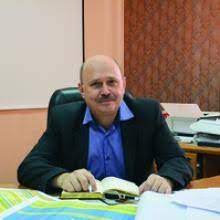Grinin, Leonid

Bio: (1958-) Russian sociologist, economist, and historian. Leonid Grinin received his doctorate from Moscow State University, and today he is a professor at the Institute for Oriental Studies of the Russian Academy of Sciences. He is the Editor-in-Chief of the journal Social Evolution and History and the Journal of Globalization Studies. Grinin is one of the key representatives of the interdisciplinary field that unites knowledge from history, economics, anthropology, and sociology, which is called "Big history", and whose most important representatives are Russian sociologists Dmitry Bondarenko, Andrei Korotayev, and Peter Turchin. Grinin's field of interest and research is extremely wide and includes global studies, futurology (forecasting world political and socio-economic development), globalization, modernization, social evolution, economic cycles and global economic crises, information science revolution, and analysis of global trends in historical processes. comparison of social and natural evolution, etc.
In his article "Production Revolutions and Periodization of History" (2007b), Grinin introduced a typology of periods of social evolution based on the key technological and economic organization of society and the revolutions associated with it that led to higher levels. The first level is „Hunter-Gatherer“, whit hunting and gathering technology, the second level was created with the agricultural (Neolithic) revolution and that is the „Craft-Agrarian level“. The third level is „Industrial“, which arose with the industrial revolution, while the fourth level is „Information-Scientific“, which came about as a result of the scientific and information revolution.
In "The Early State and Its Analogues" (2004a), Grinin introduces several new typologies concerning political evolution. The first typology concerns the emergence of the first states in history and he divides those states into: 1) Early State; 2) Developed State; and 3) Mature State. Grinin also introduces a typology of what he calls "analogues of the early state", that is, societies that were similar in demographic, technological, and economic characteristics to states, but lacked a political organization specific to early states. It introduces five types of analogues of the early state: 1) small autonomous communities that engaged in a trade or were religious centers, most often a city with its surroundings; 2) large tribal confederations with a supreme leader; 3) large tribal confederations without a supreme leader; 4) Super big nomadic amalgams - nomadic empires; 5) very large complex chiefdoms. Grinin also introduces the criteria that a political organization should meet to be considered a state: specific characteristics (attributes) of the supreme power; new principles of government organization; non-traditional and new forms of regulating social life; and redistribution of power.
Main works
Формации и цивилизации (1997);
Философия, социология и теория истории (2000);
Генезис государства как составная часть процесса перехода от первобытности к цивилизации (2001);
„The Early State and its Analogues”, in Social Evolution & History (2004a);
„Люди известности“ - новый социальный слой? (2004b);
„Глобализация и национальный суверенитет (2005);
Методология периодизации истории (2006);
Государство и исторический процесс, 3 том (2007a);
„Production Revolutions and Periodization of History”, in Social Evolution & History (2007b);
Макроэволюция в живой природе и обществе (2008);
Глобальный кризис в ретроспективе (2009);
Социальная макроэволюция (2009);
Chiefdoms: Тheories, Problems, and Comparisons (2011);
От Конфуция до Конта: Становление теории, методологии и философии истории (2011);
The Evolution of Statehood: From Early States to Global Society (2011);
Циклы, кризисы, ловушки современной Мир-Системы (2012);
Большая история развития мира: космическая эволюция (2013);
Great Divergence and Great Convergence: A Global Perspective (2015);
Economic Cycles, Crises and the Global Periphery (2016);
The Cybernetic Revolution and the Forthcoming Epoch of Self-Regulating Systems (2016).

